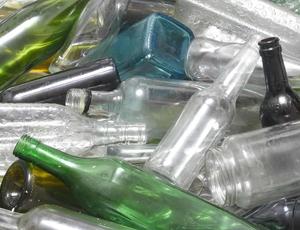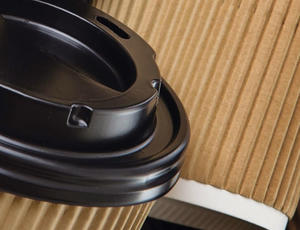Providing a cost-effective and efficient solution for difficult to recycle items.
Despite our best efforts to recycle as much as we can, there are still some difficult to recycle items, until now. Our PROCYCLE container-return service means you can now collect those difficult to recycle ad hoc items and give them a new life too.
How we can help
With all eyes seemingly on single-use plastics, fast fashion and the environment; offices, hospitals, hotels, restaurants, airports and other consumer-facing locations need to be able to show that they take sustainability seriously. With PROCYCLE boxes, you can visibly show that you're going the extra mile to capture not commonly recycled waste streams, such as:
- Crisp Packets
- Healthcare & Beauty Packaging
- Sweet Wrappers
- Clothes and Textiles
- Plastic Coat Hangers
- Drink Cartons
- Medical Packaging
How do we create value for you?
As well as improving your sustainability credentials, PROCYCLE is cost-effective and sends out a very clear message to your employees, customers and guests that you care about climate change and a sustainable, circular future. This is good news for customer servicing and brand image. It’s even better news for the planet.
How does it work?
You receive a box (made from recycled content) in your preferred size and for the specific waste stream you’re looking to recycle. When it's full, arrange a date and time for a free collection and purchase a new box to start the journey again. We recycle everything, including the box and the liner.
Have a question on our PROCYCLE service?
Check out these commonly asked questions below:
How will you recycle these materials?
Veolia can recycle some of these materials through its own recycling facilities. For the other materials, we are working with our network of recyclers to reprocess these materials into new raw materials for remanufacturing.
We prefer not to set up collection schemes unless there are proven, reliable and compliant recycling routes which provide environmental benefits.
Plastic items will be shredded into small flakes, then washed to remove any contamination, and processed to produce small pellets that can be used to manufacture new plastic products. When needed, the process can also include a separation stage when the different types of plastic flakes will be sorted before being turned into pellets.
Paper will be shredded and pulped in a paper mill to produce paper pulp, which is the raw material needed to produce new types of fiber packaging.
Clothes will be reused and worn as they are or processed into other fibre products. This is why we can only take clean and reusable clothing.
Sweet wrappers are probably the most challenging since they can be contaminated with foils (a non-separable mix of metal and plastic) however we have outlets for processing into furniture, wood substitutes and other mixed plastic products for a limited volume.
Some suppliers offer to collect all manner of mixed and exotic materials streams, but we do not believe everything can be recycled at scale or credibly and we wish to strike a balance between increasing recycling rates and having ‘real’ solutions that are sustainable.
Where will our materials end up?
Veolia has always taken the position to endorse and deliver “real” recycling options. The collected recyclable materials will end up in new products such as milk bottles, garden furniture or plant pots, whilst clothing and textiles will be reused where possible or end up being remanufactured into new textiles. The recycling will create circular economies and real economic value rather than be a way to dispose of material and call it recycling.
We are always trying to ensure the highest order of recycling, meaning for milk bottles we will aim to make new bottles, for clothes back to clothes, basically following the waste hierarchy.
What about contamination?
Ideally, we want no contamination to maximise what is recycled but appreciate that that is not always possible. A small amount of contamination is therefore acceptable depending on the material and box size, and this will be removed at our sorting centre wherever practical.
Where contamination exceeds process capability some material will be rejected. The actual % depends on the qualities of the recyclates, collection conditions and the recycling market at the time and we will feedback to customers on their recycling rates. We have experience of doing this at households across the country in our municipal collections and we have to be ready for some results that we want to improve on over time. Recycling is a journey not a destination.
What is the definition of each material (what’s in / out)?
Sweets wrappers
Sweet and chocolate bar wrappers only. No wrappers that appear to be a combination of plastic and aluminium foil (normally shiny metallic colour inside), no crisp packets or any other types of packaging which are foils. If in doubt keep it out.
Small Children's Toys
Hard plastic only. No batteries or electronic components, circuit boards or electrical parts.
Fresh milk bottles
Plastic milk containers with or without caps only. Empty, squashed with lid on to retain squashed shape and get more in the box saving you money!
Healthcare bottles (shampoo, conditioner, mouthwash)
Plastic bottles with or without caps only (remove plungers/triggers). No glass, metal or multi material bottles.
Clothes & textiles
Only clean and reusable clothing / textiles.
Paper straws
Only paper (don’t mix with plastic).
Plastics straws
Only plastic (don’t mix with paper).
Do you guarantee 100% recycling?
For clean uncontaminated materials, through our Procycle service we can guarantee 100% recycling for the items, meaning they will all be used to make new materials after residues or contamination is removed, including recycling the box and plastic liner.







